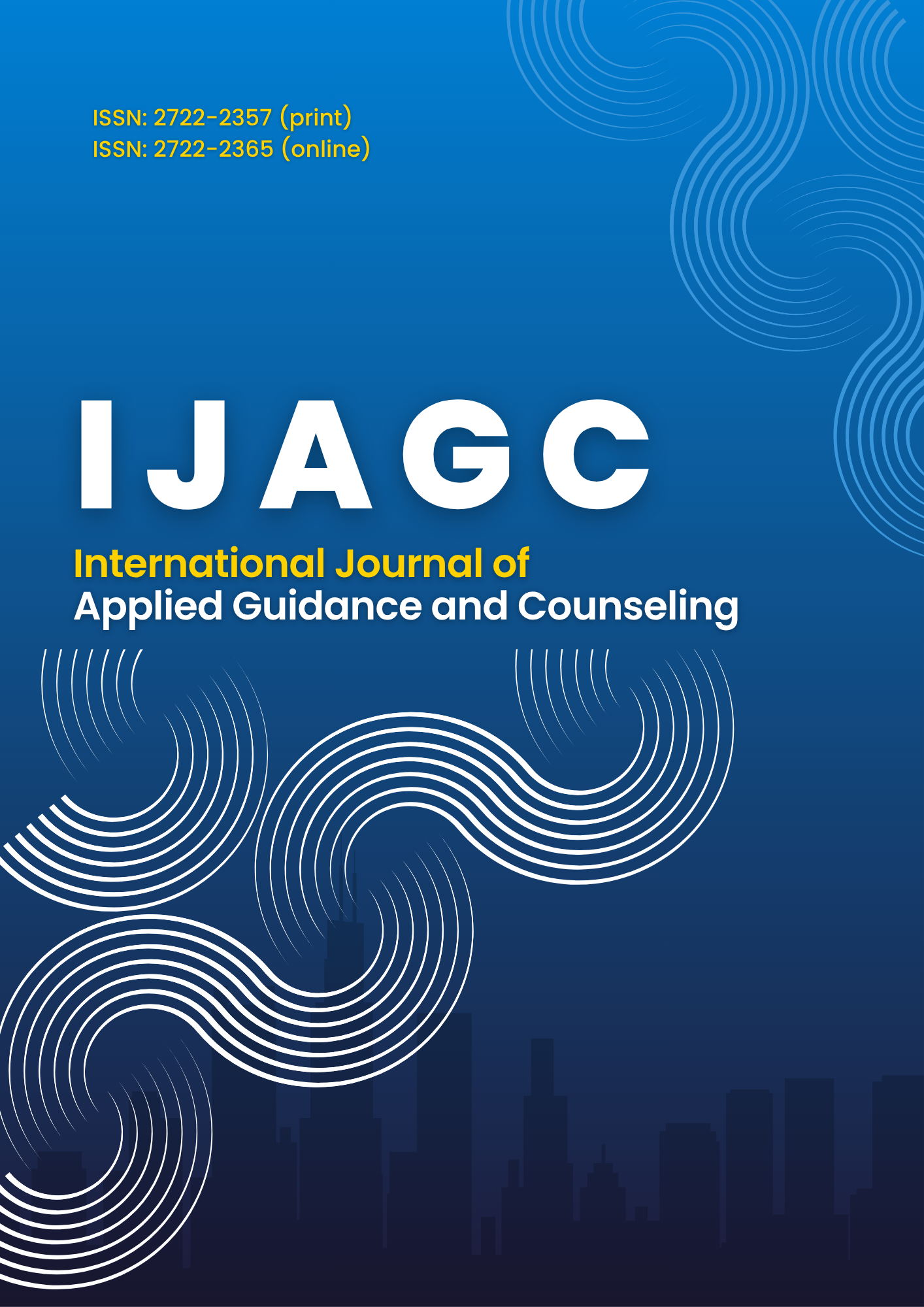Instrument Flourishing Adolescence Scale: Validating a Comprehensive Well-being Measure Using the Rasch Model
DOI:
https://doi.org/10.26486/ijagc.v6i2.4910Abstract
This study aimed to develop and validate the instrument flourishing adolescence scale (I-FAS) as a comprehensive tool to measure adolescent flourishing, particularly for use in guidance and counseling contexts. The instrument was developed based on five key dimensions: psychological, social, subjective, emotional, and spiritual well-being. The development process included theoretical framework analysis, item construction, expert validation , and a pilot test to assess clarity and readability. Revisions were made before large-scale testing. A quantitative approach was used to evaluate the psychometric properties of the instrument through the Rasch Model. Data were collected via an online survey from 400 junior and senior high school students in Yogyakarta. The results showed that the I-FAS met the unidimensionality criteria, with a raw variance explained of 31.4%, exceeding the 20% threshold. The instrument also demonstrated strong internal consistency (Cronbach's Alpha = 0.92), high person reliability (0.90), and item reliability (0.99). The item difficulty range was acceptable, with the most difficult item having a measure of +1.89 and the easiest –1.76. Five items were identified as misfitting and considered for revision. These findings support that the I-FAS is a valid, reliable, and culturally relevant instrument for measuring adolescent flourishing. The inclusion of spiritual well-being provides added value in cultural contexts where spirituality plays a key role. The I-FAS can assist counselors and educators in identifying student needs and designing targeted interventions to support their well-being and development
Downloads
Published
Issue
Section
License
Copyright (c) 2025 Diki Herdiansyah, Rohmatus Naini

This work is licensed under a Creative Commons Attribution-ShareAlike 4.0 International License.
Authors who publish with IJAGC: International Journal of Applied Guidance and Counseling agree to the following terms:
Authors retain copyright and grant the Insight right of first publication with the work simultaneously licensed under a Creative Commons Attribution License (CC BY-SA 4.0) that allows others to share (copy and redistribute the material in any medium or format) and adapt (remix, transform, and build upon the material) the work for any purpose, even commercially with an acknowledgement of the work's authorship and initial publication in Insight. Authors are able to enter into separate, additional contractual arrangements for the non-exclusive distribution of the journal's published version of the work (e.g., post it to an institutional repository or publish it in a book), with an acknowledgement of its initial publication in Insight.
Authors are permitted and encouraged to post their work online (e.g., in institutional repositories or on their website) prior to and during the submission process, as it can lead to productive exchanges, as well as earlier and greater citation of published work (See The Effect of Open Access).












